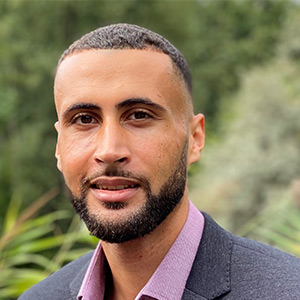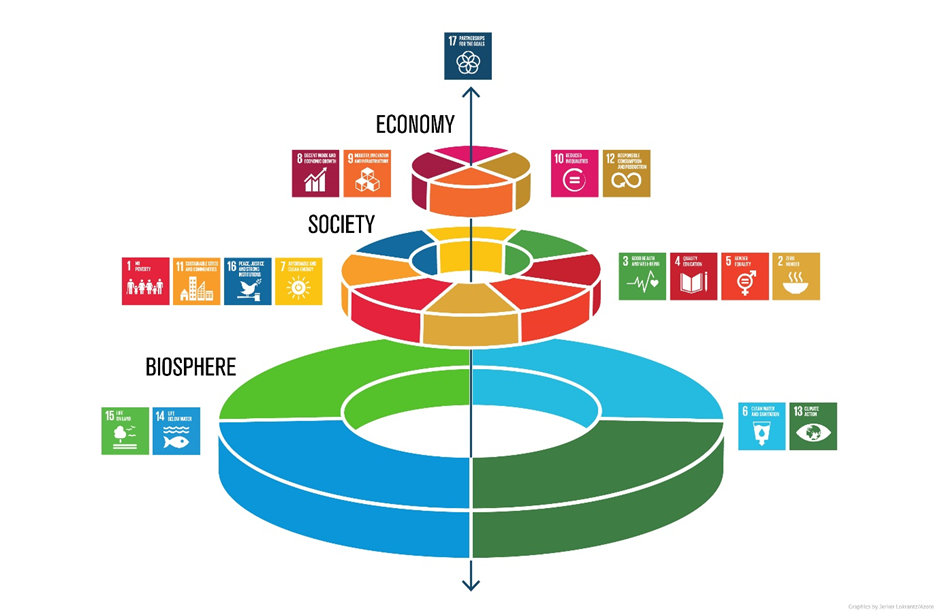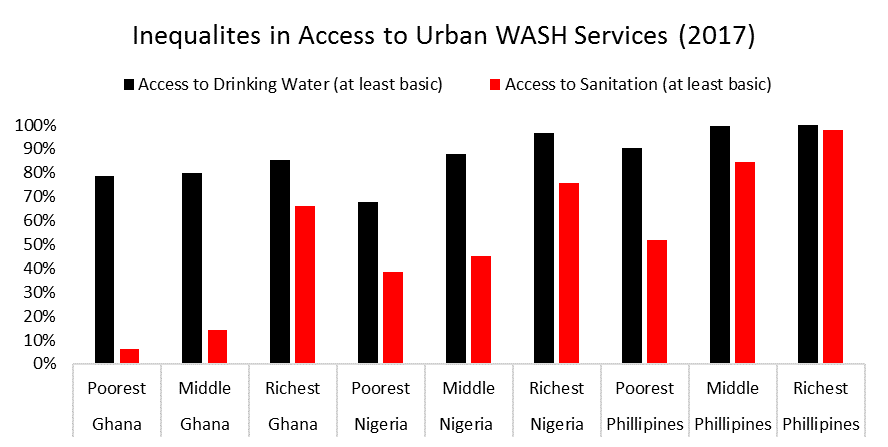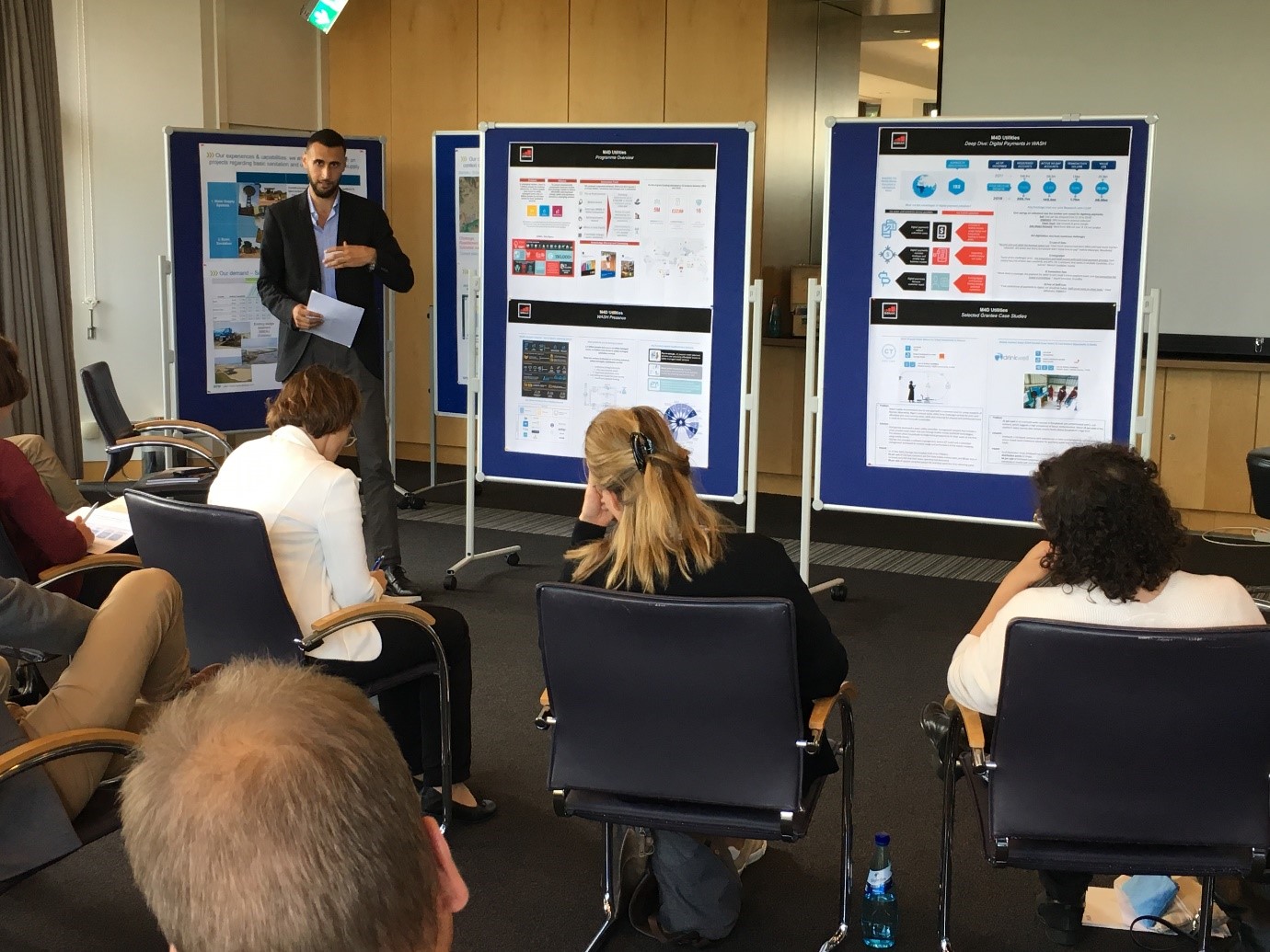On 12 June, the GSMA Mobile for Development Utilities team was pleased to participate in Kreditanstaltfür Wiederaufbau’s (KfW) Water Sector seminar near Frankfurt. The seminar brought together KfW’s water sector professionals from country offices throughout the world, as well as some selected external partners.
The seminar kicked off with a presentation by Prof. Stefal Uhlenbrock (UNESCO), who highlighted the importance of water to the achievement of the sustainable development agenda as a whole (see figure below), and provided background and framing to the findings of two recent reports that track the world’s progress in terms of achieving SDG 6 (Clean Water & Sanitation for All by 2030).
Source: Stockholm Resilience Centre
The SDG 6 Synthesis Report 2018 on Water and Sanitation highlights that the world is currently not on track to meet SDG 6. Only one in five countries with 95 per cent coverage is on track to achieve universal basic water services by 2030, while in sanitation only one in 10 countries below 95 per cent coverage is on track to achieve universal coverage by 2030.
Meanwhile, the World Water Development Report 2019, ‘Leaving no one behind’, stresses that access to water and sanitation remains defined by significant inequalities both between and within countries. Half of the global population that drinks water from unsafe sources lives in Africa. Meanwhile, vulnerable and disadvantaged groups, who tend not to be connected to piped systems, suffer disproportionately from inadequate access to safe drinking water and sanitation services and often pay more for their water supply. The recently released WHO/UNICEF JMP report, ‘Progress on household drinking water, sanitation and hygiene 2000-2017’, with a specific focus on inequalities, highlights that, “in 24 out of 90 countries with disaggregated data, basic water coverage among the richest wealth quintile was at least twice as high as coverage among the poorest quintile” (JMP, 2019). According to Uhlenbrock, some of the main drivers of inequality in the WASH sector (water, sanitation and hygiene) include population growth, extreme poverty, and urbanisation. These drivers are particularly evident when one considers inequalities in access between slum and non-slum households. As shown in the below illustration on access to WASH services in urban Ghana, Nigeria, and the Philippines, there are profound inequalities in access across different urban income segments, particularly in sanitation.
Source: GSMA Mobile for Development Utilities (based on JMP 2019)
KfW has a long-standing commitment to delivering SDG 6, and a truly global presence in the water sector. In 2018, KfW pledged more than €1.3 billion for the entire sector – water, waste water and solid waste. Its current water portfolio of over 490 ongoing projects, reaches over 416 million people, and includes operations in least-developed-countries such as Mali, but also emerging economies such as Ukraine.
Particularly encouraging is that KfW is encouraging its water portfolio to move beyond ‘sector-silos’, and is placing its activities in the context of other global development challenges such as rapid urbanisation and climate change (Read more on this here). Projects that leverage circular economy approaches (such as waste-to-energy or waste-to-fertiliser use cases in the WASH sector), or increase climate resilience (such as rain-water retention or storm-water management) are seen as particularly important in this regard.
Meanwhile, innovative technologies such as mobile and/or digital solutions are increasingly opening up pathways to more affordable and efficient water and sanitation services in developing countries. Rüdiger Heidebrecht, who leads training and international cooperation at the German Water Association, stressed that technology is disrupting the sector as a whole, and that Germany should leverage its unique track record in vocational training to help increase the technology absorption capacity of water professionals and water utilities across the world. Meanwhile, Maxime Souvignet, who coordinates the Munich Climate Insurance Initiative, presented an innovative big data tool, which not only allows development finance institutions to predict and model climate risks based on a set of vulnerability curves, but also has the capability to propose and rank possible mitigation measures.
The GSMA Mobile for Development Utilities workshop we hosted during the seminar focused on how mobile technology can unlock innovative use cases for water and sanitation service delivery in developing countries. To achieve this objective, our GSMA Mobile for Development Utilities Innovation Fund has supported 20 projects that leverage innovative technologies in the WASH sector across Sub-Saharan Africa and emerging Asia. Mobile solutions can help water utilities to reduce non-revenue water (water that is pumped and then lost or unaccounted for) in centralised utilities by digitising processes such as meter reading, billing, payments and complaint management systems (see video below). They can also help private or community-run rural water point to become more commercially sustainable through remote water point monitoring leveraging machine-to-machine (M2M) technology.
Watch our CityTaps video to understand how CityTaps’ smart prepaid metering system is benefiting end-users in Niamey, Niger:
These solutions have the potential to address some of the key challenges facing water utilities in developing countries in a cost-effective manner, while also ensuring the inclusion of vulnerable and disadvantaged communities. Technological solutions do not have to be flashy and capital-intensive, but when applied with purpose, they can actually facilitate and extend access to the underserved. As we highlighted in a recently published joint-paper with CGAP, for which we surveyed 25 WASH service providers from Africa, Asia, and Latin America, the introduction of digital payments doesn’t only allow for service providers to reduce (cash) collections costs, which can account for 3 – 20 per cent of total revenue, but can also unlock scarce human resources to enable new business models and increase customer reach.
We were particularly excited to engage with questions ,and share learnings on how to overcome important implementation challenges that are often associated with digital solutions (such as digital literacy, leadership buy-in, and fear of staff cuts) from our grantee portfolio. It was also great to hear about KfW’s growing interest in mobile-enabled use cases.
We would like to end this blog by thanking KfW for inviting us to present at the seminar, and look forward to continue to collaborate and innovate to make the water sector more resilient and more sustainable for the future.
The GSMA Mobile for Development (M4D) Utilities programme is funded by the UK Department for International Development (DFID), USAID as part of its commitment to Scaling Off-Grid Energy Grand Challenge for Development and supported by the GSMA and its members.






